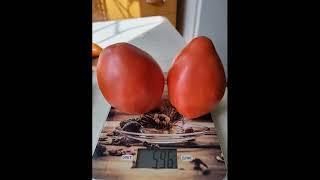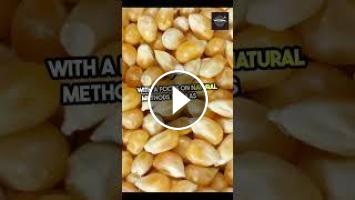**Overview:**
Organic farming is revolutionizing agriculture by focusing on sustainable, eco-friendly practices that enhance soil health, biodiversity, and crop quality. By avoiding synthetic chemicals and emphasizing natural processes, organic farming aims to produce nutritious food while protecting the environment and promoting long-term agricultural resilience.
**Key Innovations in Organic Farming:**
**1. Soil Health and Management:**
- **Techniques:** Use of compost, green manure, and cover crops.
- **Benefits:** Enhances soil fertility and structure, promotes beneficial microorganisms, and increases organic matter content.
- **Impact:** Results in healthier, more resilient soils capable of supporting high-quality crop production.
**2. Natural Pest and Disease Control:**
- **Techniques:** Integrated Pest Management (IPM), biological control agents, and natural repellents.
- **Benefits:** Reduces reliance on synthetic pesticides by using beneficial insects, crop rotation, and natural plant extracts to manage pests and diseases.
- **Impact:** Minimizes environmental and health risks associated with chemical pesticides, promotes biodiversity, and enhances ecosystem balance.
**3. Crop Diversity and Rotation:**
- **Techniques:** Polyculture, crop rotation, and intercropping.
- **Benefits:** Diversifies crops grown on the same land to improve soil health, reduce pest and disease cycles, and enhance yield stability.
- **Impact:** Increases biodiversity, improves nutrient cycling, and reduces the risk of crop failure due to pests or diseases.
**4. Organic Fertilizers and Amendments:**
- **Techniques:** Use of organic compost, animal manure, bone meal, and rock phosphate.
- **Benefits:** Provides essential nutrients to plants without the environmental harm of synthetic fertilizers, improving soil fertility and structure.
- **Impact:** Enhances crop growth, supports soil microbial activity, and promotes sustainable nutrient management.
**5. Water Conservation and Management:**
- **Techniques:** Drip irrigation, rainwater harvesting, and mulching.
- **Benefits:** Reduces water usage, improves water efficiency, and conserves soil moisture.
- **Impact:** Supports sustainable water management, particularly in water-scarce regions, and reduces soil erosion and water runoff.
**Impact and Goals:**
- **Environmental Sustainability:** Protects natural resources by avoiding synthetic chemicals, reducing pollution, and promoting biodiversity.
- **Soil Health:** Builds and maintains healthy soils that support robust plant growth and resilience against environmental stressors.
- **Food Quality:** Produces high-quality, nutritious food free from synthetic pesticides and fertilizers.
- **Economic Viability:** Supports farmers with sustainable practices that reduce input costs and enhance long-term productivity.
- **Community and Ecosystem Health:** Promotes the well-being of farming communities and ecosystems through environmentally friendly practices.
Revolutionizing Agriculture through organic farming embraces a holistic approach that benefits the environment, farmers, and consumers. By integrating these innovative practices, we aim to create a sustainable agricultural system that supports the health and vitality of our planet and its people.
Organic farming is revolutionizing agriculture by focusing on sustainable, eco-friendly practices that enhance soil health, biodiversity, and crop quality. By avoiding synthetic chemicals and emphasizing natural processes, organic farming aims to produce nutritious food while protecting the environment and promoting long-term agricultural resilience.
**Key Innovations in Organic Farming:**
**1. Soil Health and Management:**
- **Techniques:** Use of compost, green manure, and cover crops.
- **Benefits:** Enhances soil fertility and structure, promotes beneficial microorganisms, and increases organic matter content.
- **Impact:** Results in healthier, more resilient soils capable of supporting high-quality crop production.
**2. Natural Pest and Disease Control:**
- **Techniques:** Integrated Pest Management (IPM), biological control agents, and natural repellents.
- **Benefits:** Reduces reliance on synthetic pesticides by using beneficial insects, crop rotation, and natural plant extracts to manage pests and diseases.
- **Impact:** Minimizes environmental and health risks associated with chemical pesticides, promotes biodiversity, and enhances ecosystem balance.
**3. Crop Diversity and Rotation:**
- **Techniques:** Polyculture, crop rotation, and intercropping.
- **Benefits:** Diversifies crops grown on the same land to improve soil health, reduce pest and disease cycles, and enhance yield stability.
- **Impact:** Increases biodiversity, improves nutrient cycling, and reduces the risk of crop failure due to pests or diseases.
**4. Organic Fertilizers and Amendments:**
- **Techniques:** Use of organic compost, animal manure, bone meal, and rock phosphate.
- **Benefits:** Provides essential nutrients to plants without the environmental harm of synthetic fertilizers, improving soil fertility and structure.
- **Impact:** Enhances crop growth, supports soil microbial activity, and promotes sustainable nutrient management.
**5. Water Conservation and Management:**
- **Techniques:** Drip irrigation, rainwater harvesting, and mulching.
- **Benefits:** Reduces water usage, improves water efficiency, and conserves soil moisture.
- **Impact:** Supports sustainable water management, particularly in water-scarce regions, and reduces soil erosion and water runoff.
**Impact and Goals:**
- **Environmental Sustainability:** Protects natural resources by avoiding synthetic chemicals, reducing pollution, and promoting biodiversity.
- **Soil Health:** Builds and maintains healthy soils that support robust plant growth and resilience against environmental stressors.
- **Food Quality:** Produces high-quality, nutritious food free from synthetic pesticides and fertilizers.
- **Economic Viability:** Supports farmers with sustainable practices that reduce input costs and enhance long-term productivity.
- **Community and Ecosystem Health:** Promotes the well-being of farming communities and ecosystems through environmentally friendly practices.
Revolutionizing Agriculture through organic farming embraces a holistic approach that benefits the environment, farmers, and consumers. By integrating these innovative practices, we aim to create a sustainable agricultural system that supports the health and vitality of our planet and its people.
- Категория
- Севооборот
Комментариев нет.




